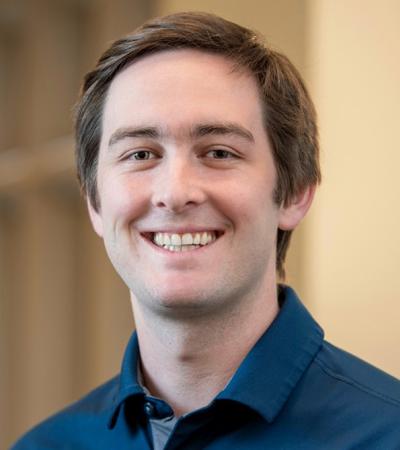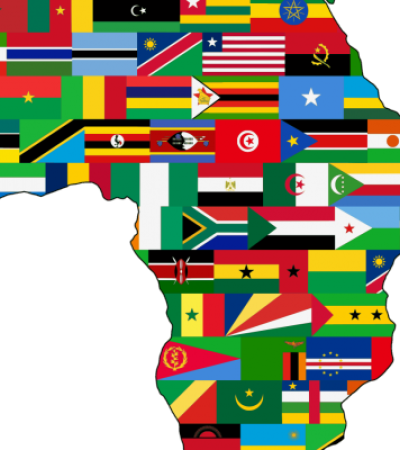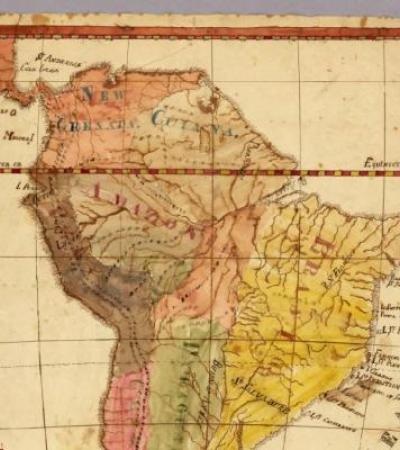
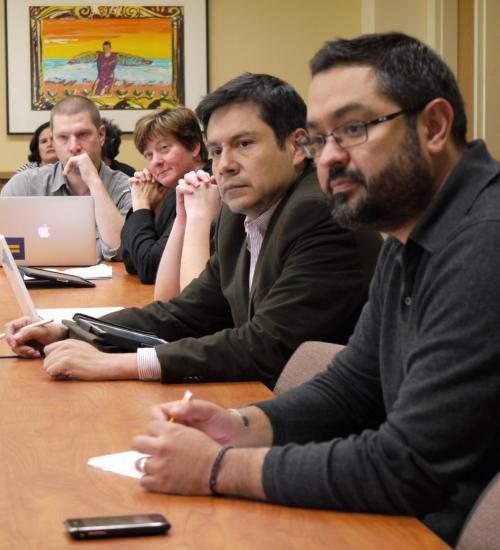
Working Groups
The Institute offers funding to groups of Kellogg faculty fellows for activities that advance scholarship in a particular area of focus and promote intellectual collaboration and innovation in a group format.
Eligibility and application information appear below. Click on these names to learn more about the current Kellogg Working Groups and other groups hosted by the Institute:
- Africa Working Group
- New Algorithmic Mediation and Memory Working Group
- New Comparative and International Politics Working Group
- New Computational Political Science for Democracy Working Group
- Democracy, Governance, Institutions and Rights Working Group
- Development Economics Working Group
- Histories of Economics and Development in the Global South working Group
- Integral Ecology Working Group
- Latin American Critical Cultural Studies Working Group
- Latin American History Working Group
- Mexico Working Group
- New Political Economy of Development Working Group
- Race, Gender, and Slavery in the Atlantic World Working Group
- Romero Studies Working Group
- Comparative Politics Workshop
The Institute provides funding for working groups that stimulate intellectual activity within the Kellogg community and more broadly throughout the University on issues critical to its core research themes of democracy and human development. Led by Institute faculty fellows, the groups typically draw together an interdisciplinary mix of faculty members, visiting fellows, graduate students, and even undergraduates to further inquiry on emerging research themes and or focus attention on topical, interdisciplinary issues. The Kellogg Institute usually funds working groups for one or two semesters at a time but welcomes multi-year proposals. Awards cover working group expenses, which will vary with the nature of a group and can be renewed through the competitive grant process. The Institute may provide logistical support for planned activities scheduled well in advance.
Please use the tabs below to find information on Kellogg working group grants.
You can sign in to the online application system by clicking on "Sign in with Google" and use your Notre Dame credentials
Submission deadlines for A/Y 2025 - 26:
- Tuesday, September 2, 2025
- Tuesday, October 28, 2025
- Tuesday, February 3, 2026
- Tuesday, March 31, 2026
- The complete application will require:
-
A detailed description of the activities which clearly identifies:
- the focus of the proposed working group
- the group’s international dimension
- the group's relationship to the thematic priorities of the Kellogg Institute
- the group’s substantive goals
- the nature of planned activities to attain substantive goals
- expected accomplishments during the requested funding period
- the schedule for planned activities. Note, any dates must be coordinated with Kellogg's Senior Events Program Manager Therese Hanlon in advance of the proposal submission.
- a plan to share the group’s products with the wider Kellogg community - List of participants that meet the above eligibility requirements
- A detailed line-item budget (see budget template below)
- A narrative budget justification that provides an explanation of your budget at a high level; it does not need to be extensive nor detail proposed expenditures line by line as your budget does that. The goal of the justification, which can be brief, is to allow you to explain in a narrative the rationale for the requested funds, why the requested amounts (e.g., number of trips, length of stay, etc) is necessary for the completion of your research, and how you calculated the amounts requested in order to demonstrate to the committee that the amounts requested are reasonable and not made up.
- A progress report and self-assessment of working group activities and accomplishments to date (for working group renewals only)
Allowable Expenses
The Kellogg Institute usually funds working groups for one or two semesters at a time though multi-year proposals are welcome. Awards cover working group expenses, which will vary with the nature of a group and can be renewed through the competitive grant process.
Funding is available for a variety of costs, including but not limited to the following:
- PERSONNEL - Includes student assistants. Working Groups are highly encouraged to have a graduate student coordinator.
- GUEST SPEAKER TRAVEL - Includes airfare, ground transportation, and lodging.
- MEALS - Includes meals with speakers, meeting snacks, receptions, etc.
-
SUPPLIES - Includes posters and reading material copies.
Funding Amount
Awards average approximately $7,500 per academic year; larger amounts are occasionally considered for particularly ambitious proposals.
In all cases, final determination of the amount awarded is at the discretion of the grants committee and will depend on their assessment of the specified needs in the proposal, budget, and justification.
In accordance with current University and Keough School policies, the Kellogg Institute cannot fund or reimburse expenses related to alcoholic beverages at public-facing/non-private events. Alcohol expenses may only be covered in limited cases, such as private meals with invited guests, and within the following guidelines:
- Dinners: limited to 4 people (guest plus 3)
- Lunches: limited to 3 people (guest plus 2)
- Breakfasts: limited to 3 people (guest plus 2)
- Alcohol at dinners: limited to one beer or glass of wine per person
- It is recommended to order a bottle of wine for the table to share rather than individual drinks.
Please also be mindful of University spending limits for total meal costs, including any alcoholic beverages, tax, and gratuity: $25 per person for breakfast, $50 for lunch, and $100 for dinner.
Applicants must notify the Kellogg Institute of any funding received from another source; the Institute may adjust the award accordingly. No duplicate funding (that is, funding for the same purpose) is allowed.
An interdisciplinary committee of Kellogg faculty fellows reviews proposals for Kellogg working group grants. Accordingly, applicants should make sure that the proposal is clear to someone outside the applicant’s discipline.
Proposals will be evaluated based on the following criteria:
- Relation to Kellogg core research theme(s) of democracy and/or human development
- Potential to stimulate intellectual activity within the Kellogg community and more broadly throughout the University on critical global issues
- Level of intellectual rigor and interest to the Kellogg community
- Potential to produce concrete academic results (conferences, publications, research projects, or outside funding)
- Overall quality of the proposal including its potential for innovation, as well as professional presentation (e.g., spelling, grammar, and accurate budgeting)
- Budgetary appropriateness (i.e., the requested expenses are justified as necessary to the completion of the research)
- Priority will be given to interdisciplinary groups
Kellogg faculty fellows are eligible to apply for working group grants. Proposals must be within the field of international studies and should relate to at least one of Kellogg’s core research themes of democracy and human development. The group must meet all of the following requirements:
- At least 5 participants total;
- At least 2 participants who are affiliated with the Institute (faculty or doctoral students);
- At least 2 regular Notre Dame faculty members; and
- The chair or co-chair of a working group must be a Kellogg faculty fellow.
Current Working Groups
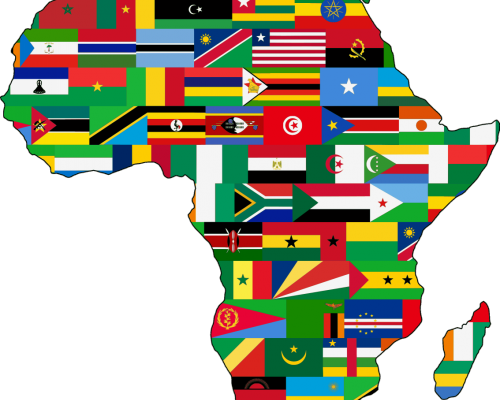
Africa Working Group
The Africa Working Group provides a forum for resident faculty, graduate students, and outside scholars to present and discuss cutting edge research on Africa. Participants, who come from a range of disciplines, share a common interest in investigating Africa’s past, present, and future, as well as Africa’s place in the larger global order. The group also sponsors Africanist events, enriching the study of Africa on campus and building on growing student interest in the region.
Chairs: Paul Ocobock and Ellis Adams
Graduate Assistants: Adedoyin Okanlawon, Will O'Brien and Debora Rogo

Algorithmic Mediation and Memory Working Group
The Kellogg-Lucy Working Group "Algorithmic Mediation and Memory" examines how emerging AI systems, such as those based on Large Language Models (LLMs), impact historical narratives and collective memory across cultural, geographical, and religious contexts. By bringing together scholars from history, philosophy, memory studies, computer science, theology, and international studies, this working group explores a critical research gap in understanding how algorithmic systems shape our relationship with the past.
Cochairs: Nuno Moniz and Atalia Omer
In collaboration with the Lucy Family Institute for Data & Society

Computational Political Science for Democracy Working Group
The Computational Political Science for Democracy (AIPoliS) working group brings together faculty, scholars, and students to use computational methods for studying and improving democracy. We focus on combining political science, AI, and data science to develop new theories and tools.
Cochairs: Michael Coppedge and Dmitry Zaytsev
Graduate Assistant: Gessica de Freitas
In collaboration with the Lucy Family Institute for Data & Society

Comparative and International Politics Working Group Seminar
The Comparative and International Politics Working Group Seminar is designed to bring emerging scholars to campus and to offer advanced graduate students (with priority given to job market candidates) and postdoctoral fellows working on comparative politics and/or international political economy an opportunity to present their work. We also welcome self-nominations from Notre Dame faculty.
Each session features a presentation of a pre-circulated advanced working paper, followed by a discussion by a graduate student, and then an open general discussion. Attendees also have the chance to sign up for one-to-one meetings with the external speakers.
Chairs: Ricky Clark and Marc Jacob
Graduate Assistant: Tomás Gianibelli

Democracy, Governance, Institutions and Rights Working Group
The Democracy, Governance, Institutions, and Rights working group is dedicated to the broad study of comparative democracy and governance. It provides a collaborative forum where faculty and other scholars can share well-developed research projects and receive constructive feedback. The group also seeks to strengthen academic community and foster collegial relationships among researchers across different campus units.
Chairs: Aníbal Pérez-Liñán and Kyle Jaros
Graduate Assistant: Melissa Vargas
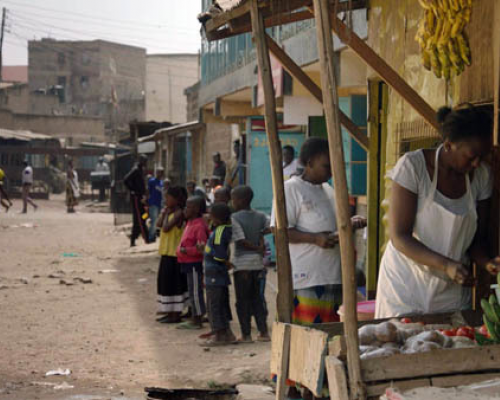
Development Economics Working Group
The Development Economics Working Group supports graduate and faculty research in the economic determinants of human development and how economic policy can be used to promote human development. It promotes dialogue among researchers with different areas of expertise, from a variety of perspectives and subject areas, such as health, education, infrastructure, governance, and migration. Regular meetings allow participants to workshop research in progress, while occasional seminars bring external researchers to campus to discuss their work and provide feedback on projects of group members.
Cochairs: Santosh Kumar Gautam and Heitor Pellegrina
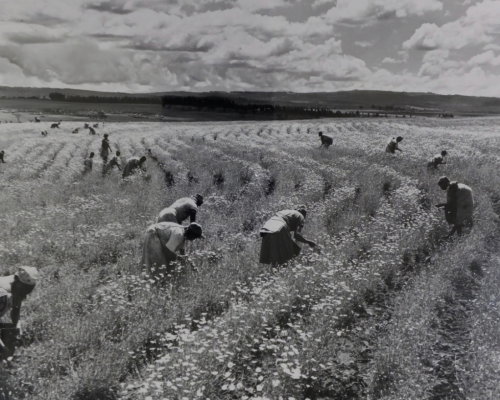
Histories of Economics and Development in the Global South
The Histories of Economics and Development in the Global South working group aims to bring together scholars studying histories of capitalism, economic inequalities, human development, and international trade - just to name a few. Geographically, the working group will focus on research being conducted in Latin America, Africa, and Asia. The group endeavors to bridge the gap between the humanities and social sciences, connecting the research and methods of historians with economists, political scientists, and sociologists. We hope to create a truly interdisciplinary space that will enrich the scholarship of Kellogg’s faculty fellows and graduate students.
Cochairs: Paul Ocobock, Ted Beatty, Nikhil Menon
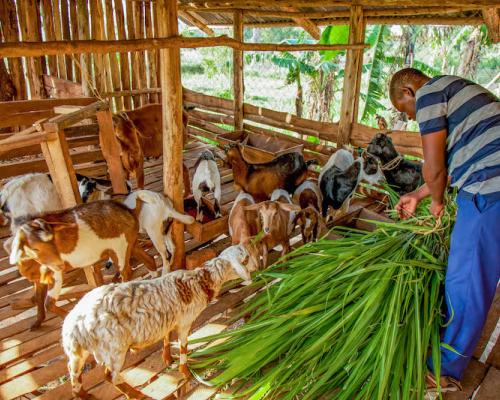
Integral Ecology Working Group
The Integral Ecology (IE) Working Group seeks to provide a platform for more focused discussion on the notion of integral ecology. In its conceptualization, integral ecology is the notion at the heart of Pope Francis’ ecological encyclical Laudato Si’. Francis sees integral ecology as the “integrated approach” which brings together the various dimensions – scientific, economic, cultural, spiritual, political, and educational – in responding to the twin cries of the earth and of the poor. There are many unanswered questions relating to the meaning, vision, and practicability of the notion of integral ecology. For instance, how does it relate to other notions of Catholic social teaching such as integral human development? As a mindset and way of living, can integral ecology be cultivated, learned, and taught? How? What might its impact look like?
Chair: Fr. Emmanuel Katongole
Graduate Assistant: Emanuel Ojeifo
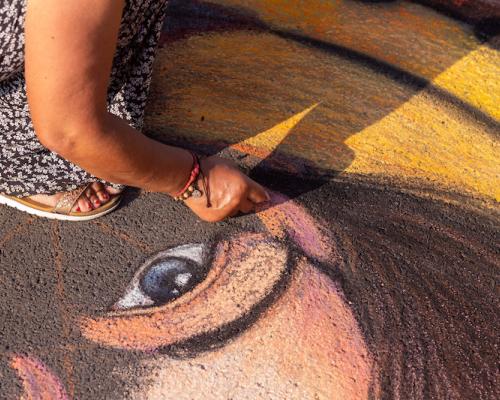
Latin American Critical Cultural Studies Working Group
The Latin American Critical Cultural Studies Working Group focuses on Latin American Studies from a critical cultural perspective. We create a space for discussing humanities that are essential to the discourse surrounding Latin American democracies and development. Issues such as migration, poverty and inequality, civil and human rights, processes of modernization, collective memory, social movements, feminism, authoritarianism, and racial violence cannot be fully understood without considering their expressions in the arts and literature of the region.
Cochairs: Vanesa Miseres, Maria Rosa Olivera Williams, Magdalena López
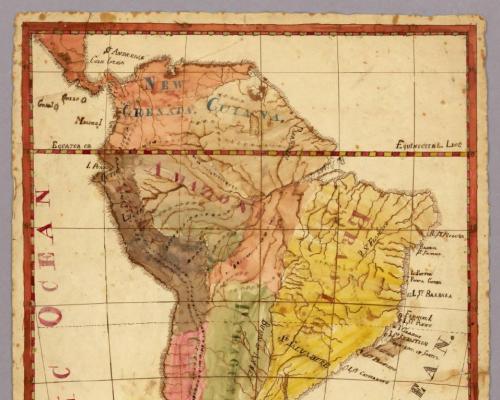
Latin American History Working Group
The Latin American History Working Group brings together Latin American historians – both faculty and graduate students – for serious, extended, and creative intellectual exchange. Monthly meetings feature paper presentations by faculty members, graduate students, and invited scholars. Encouraging an interdisciplinary approach, the group aims to strengthen the growing community of Latin American historians at Notre Dame, to professionalize its graduate students, and to host notable scholars in the field at the University.
Cochairs: Ted Beatty, Karen Graubart, and Jaime Pensado

Mexico Working Group
The Mexico Working Group serves as a venue for resident and visiting faculty and graduate and undergraduate students to consider issues related to Mexico. With the goal of strengthening the presence of Mexico at Notre Dame, the group supports conferences, talks, cultural events, and academic discussions. The group also fosters academic and cultural exchanges to link the University with Mexico and Mexican Studies institutions and coordinates a biennial Undergraduate Research Conference focused on Mexican issues.
Chair: Jaime Pensado
Graduate Assistant: Victoria Basulto

Political Economy of Development Working Group
The Political Economy of Development Working Group provides a platform for discussing interdisciplinary research that combines political science and economics. This space is meant for critical discussions, theoretical reflections, and innovative ideas regarding the role of markets and the impact of political dynamics on redistributive challenges. The group will engage with various disciplines, including economics, anthropology, sociology, political science, and political economy.
Chair: Andrés Mejia Acosta
Graduate Assistant: Andrea Perilla Camargo
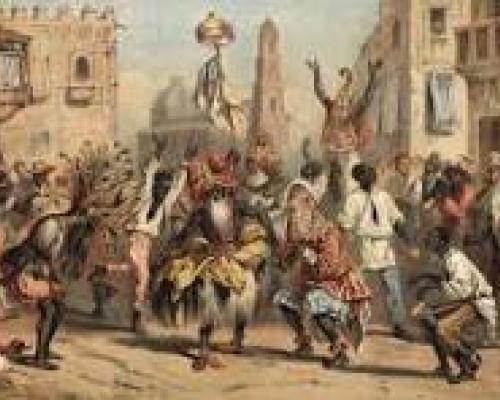
Race, Gender, and Slavery in the Atlantic World
The Race, Gender, and Slavery in the Atlantic World working group explores the diverse histories of the Atlantic African diaspora, particularly those that intersect with race, gender, and slavery. We examine how these histories reflect traditional Western theories of development and democracy, highlighting their intellectual and material shortcomings. Notably, the Enlightenment project's emphasis on personal freedom occurred alongside the increasing enslavement of people from the African continent. Our discussions engage with Western concepts of development and democracy while also incorporating non-Western epistemologies related to political participation and human agency. We focus on the lived experiences of those who have faced denial of political rights and bodily sovereignty in the modern world.
Cochairs: Karen Graubart and Scott Barton
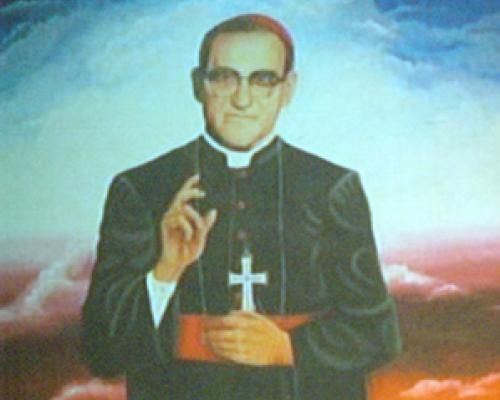
Romero Studies Working Group
The Romero Studies Working Group supports scholarly conversations and academic research on the life and work of St. Óscar Romero. Our goal is to bring together a diverse, interdisciplinary, and global community of scholars to engage the significance of Romero’s legacy for today’s world. The Working Group will host regular academic presentations and work-in-progress sessions related to the study of Romero. As a new working group, sessions in the fall 2024 will seek to establish the strongest possible foundation for our work. We will have five sessions focused on “The Future of Romero Studies,” with leading scholars starting our conversations off with their own vision of what academic studies have achieved thus far and what remains the most important avenues for further exploration.
Cochairs: Todd Walatka and David Lantigua
Graduate Assistant: Anna Nowalk
Other Groups
Comparative Politics Workshop
The Comparative Politics Workshop is a graduate student-led forum geared towards presenting and discussing papers and research projects. During the academic semester, regular sessions are held at the Hesburgh Center. These meetings are open to everyone, particularly students, faculty and Kellogg Institute Visiting Fellows. Participants have the chance to present their work and receive valuable, constructive feedback from their colleagues.
Organizer: Tomás Gianibelli
More information: Comparative Politics Workshop site
Upcoming Working Group Events







